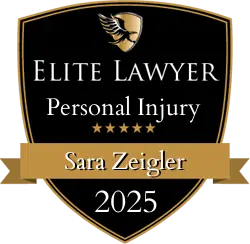After suffering an injury on someone else’s private property, you may wonder if you are entitled to compensation. You likely have a right to claim compensation for the damages you sustained as a result. To be successful with your case, you must show that the property owner could have prevented you from getting hurt. For example, you may be able to show that the property owner knew or should have repaired a dangerous condition on their premises, or warned you about it.
Below, one of our West Virginia premises liability lawyers explains the important laws governing these cases.
Private Property vs. Public Property
Accident victims often wonder if they can sue for personal injuries suffered on private property. The majority of premises liability accidents occur on private property and victims can file a lawsuit for damages. Private property includes any premises owned by an individual, such as a homeowner, or a private entity, such as a business. Public property, on the other hand, includes land owned by a government entity and is accessible to the general public, such as a city or national park.
The Property Owner’s Duty of Care
Subject to some statutory exceptions recently enacted in West Virginia law, the owner or occupant of the property has a legal duty to ensure the property is safe for others to lawfully enter. People may lawfully enter a premises for several reasons, including:
- By implied invitation, such as when a business is open to customers
- By expressed invitation, such as when a social host invites a friend to their property
- By purchasing a ticket to an event, such as to a sporting game or a concert
The law in West Virginia has different classifications for different types of visitors. These distinctions are often legally intricate, so legal guidance is advisable to determine the level of duty owed.
Breach of Duty of Care
The next element of proof you must establish is that the property owner breached their duty of care, if such a duty exists. This is essentially proving that the owner or occupier failed to ensure their premises were safe for you to enter. Dangerous conditions that can help prove a breach of duty of care include:
- Spilled liquids that cause a slip-and-fall accident
- Equipment or clutter left in walkways that cause a trip and fall accident
- Insufficient security
- Inadequate fencing for a swimming pool
- A dangerous dog that attacked or bit a visitor
- Broken steps, railings, or sidewalks
- Improper storage of dangerous chemicals
Causation
A dangerous condition on a property is not enough on its own to file a personal injury claim. You must also show that the hazardous condition caused the accident that resulted in injuries. Evidence that can prove this element of your case includes medical records, witness statements, accident or incident reports, and more. You can also take photographs of the accident scene, which can help prove a dangerous condition caused your injuries. For example, if you slipped on a floor that a business owner had just mopped, photographs can prove that there were no warning signs indicating that the floor was wet.
Damages
Personal injury claims involving injuries sustained on private property are meant to compensate you for any injuries or other losses you suffered as a result of the accident. As such, you must prove the full extent and nature of the damages you suffered. Some of the most common types of damages in premises liability claims include:
- Medical expenses for emergency care immediately after the accident
- The cost of future medical treatment
- Lost wages, sick pay, vacation pay, bonuses, and other employment benefits if you could not return to work right away
- Loss of earning capacity, if you are unable to return to the same line of work in the future and must accept a lower-paying job
- Pain and suffering
- Loss of quality of life
- Permanent scarring, disfigurement, or disability
It is important to work with a West Virginia premises liability lawyer who can prove the full extent of damages you sustained. If you accept a settlement from the insurance company, you cannot go back for further compensation in the future, even if the settlement offer you accepted did not fully cover your losses.
File Your Claim On Time
You can also only sue for personal injuries sustained on someone else’s property if you file your claim on time. In West Virginia, the statute of limitations, or time limit, for filing a claim is two years from the date of injury. There are some exceptions to the law, but they are very limited. If you do not file your lawsuit before the statute of limitations expires, you will likely forfeit your right to claim any damages at all.
Many people think two years is a lot of time to file a lawsuit, but it is not. First, a full investigation into your accident must be conducted and evidence must be collected to prove that the property owner is to blame for your injuries. Negotiations between your attorney and the lawyer representing the property owner must then take place. If these negotiations are unsuccessful, you will then have to file your lawsuit in court. All of these above steps take time so you should contact a West Virginia premises liability lawyer as soon as possible after suffering injuries on private property.
Our Premises Liability Lawyers in West Virginia Can Help with Your Lawsuit
If you have been hurt on private property, our West Virginia premises liability lawyers at Kaufman & McPherson are here to fight for you.
We will conduct a full investigation, collect evidence, and negotiate with the insurance company or represent you in court so you obtain the maximum damages that are rightfully yours. Contact us to schedule a consultation and to learn more about how we can help.








